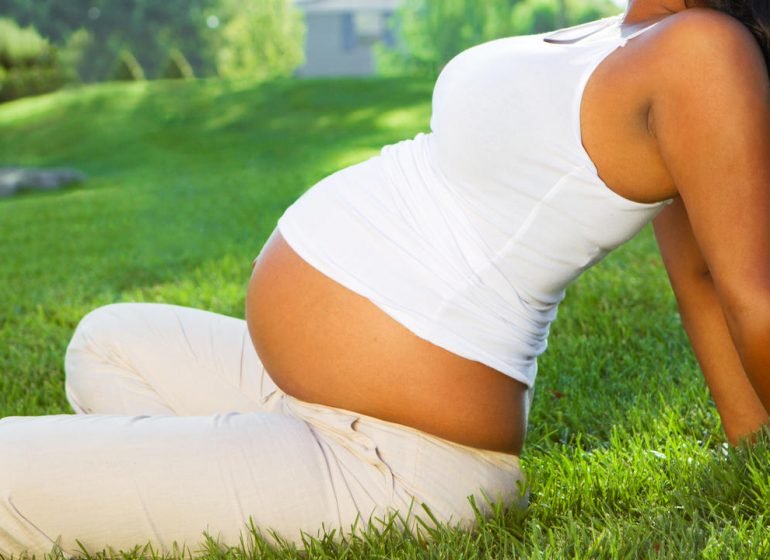COVID-19: Is It Safe To Get Pregnant During The Quarantine? Find Out What Experts Have To Say
Posted by Samuel on Fri 24th Apr, 2020 - tori.ng
File photo
As the world fights to curb the spread of COVID-19, schools have closed, businesses have shut down; people are working from home or given unpaid leave, and a growing number of states have banned large gatherings. This means a lot more snuggle time for couples who live together. And naturally, these snuggles lead to babies.
In fact, the internet is excited about a baby boom at the end of the year. But should there be a conception in quarantine?
This is a very valid question to ask because first, experts know little about the coronavirus; so even health experts don’t have all the answers. Also, the whole world is adjusting to the new situation we’re in. Economies are adjusting, businesses are adjusting, and for a while, nothing will be certain. So it’s worth it to think well about having a baby during the pandemic.
The truth is that only you can answer the question of conception in quarantine. It is as personal a decision as they come so it is up to you and your partner. But the quality of your decision is in the quality of the information you have. So while we wait for health experts to understand the virus, you might want to critically look at what we DO know about the situation. Have a look at some of the facts available.
Conception In Quarantine: Here’s What Experts Have Told Us
Like we earlier stated, experts know little about the virus itself; and with the limited number of tests available, it’s impossible to know how many people have the virus; how many people will eventually get the virus, and how overrun our already overrun health care facilities will be as a result. But here are the facts.
* COVID-19 is not transferrable in-utero
Recently, a study out of China suggested that COVID-19 is not transmitted to foetuses during pregnancy. The virus wasn’t in the amniotic fluid, cord blood, or the breast milk of postpartum women, either. So science suggests that a pregnant woman cannot transmit the virus to a foetus in utero. That’s score one for good news, right?
* The CDC says coronavirus doesn’t increase miscarriage and stillbirth risks
According to the Centres for Disease Control and Prevention, there doesn’t appear to be an increased risk of miscarriage or stillbirth if a pregnant woman does contract COVID-19. Strike two for good news.
And now, on to some not so certain news.
* Health experts are not yet sure if pregnancy increases your risk of infection
According to the CDC, no one knows if pregnant women are more susceptible to the virus. Just recently, UK Prime Minister Boris Johnson announced that pregnant people have been added to their list of “at-risk” people for contracting COVID-19. He encouraged them to stay home for at least 12 weeks. When it comes to similar viruses and respiratory illnesses, pregnant women are more “at risk;” so like anyone else during this time, if you do become pregnant you should wash your hands. Avoid touching your face, stay away from anyone with a cough or showing any other symptoms of COVID-19, and practice social distancing.
Some Other Factors To Consider In Deciding Whether To Get Pregnant During The Pandemic
* Quality healthcare is possible, but may not be a guarantee
Our healthcare system before the pandemic was not great, and now, it’s a lot worse. We are unsure how many do have the coronavirus, because there is minimal testing taking place. The experts say if you feel sick, you should self-quarantine until they test you. They are encouraging people to stay away from the hospitals, so no one is really sure what your pre-natal and post-natal care will be like.
And if you decide to give birth at home, that poses lots of risks on its own as well. Experts urge everyone to avoid hospitals, but for women going into labour, that simply isn’t always an option. Based on the limited information available, clinicians do not believe newborns are any more susceptible to the virus than they would be any other illness; and that even if a baby was born to a mom who was infected with COVID-19, it wouldn’t be wise to separate the baby from his or her mother.
* Consider how a pregnancy during this time will look and feel.
If you’re trying to conceive now, chances are you will be preparing to give birth when, hopefully, the pandemic has subsided; but no one knows just how long it will last. The government also recommended, for the time being, that grandparents avoid their grandchildren; they have postponed baby showers, and limited visits to newborns and families in general. Building a support system that is a phone call, or car drive away would, at this time, be extremely difficult.
Ultimately, the decision comes down to your health history, recommendations from your doctor, and your mental health. Trying to conceive is taxing — physically, mentally, and emotionally — all on its own; and without the growing stress of our current environment.
True, there’s really no such thing as a “right time” to have a baby, but there are times that are better than others. In the end, you and your partner are the only people who can decide when the right time to have a baby will be.
***
This article was first published on AfricaParent.com
















































